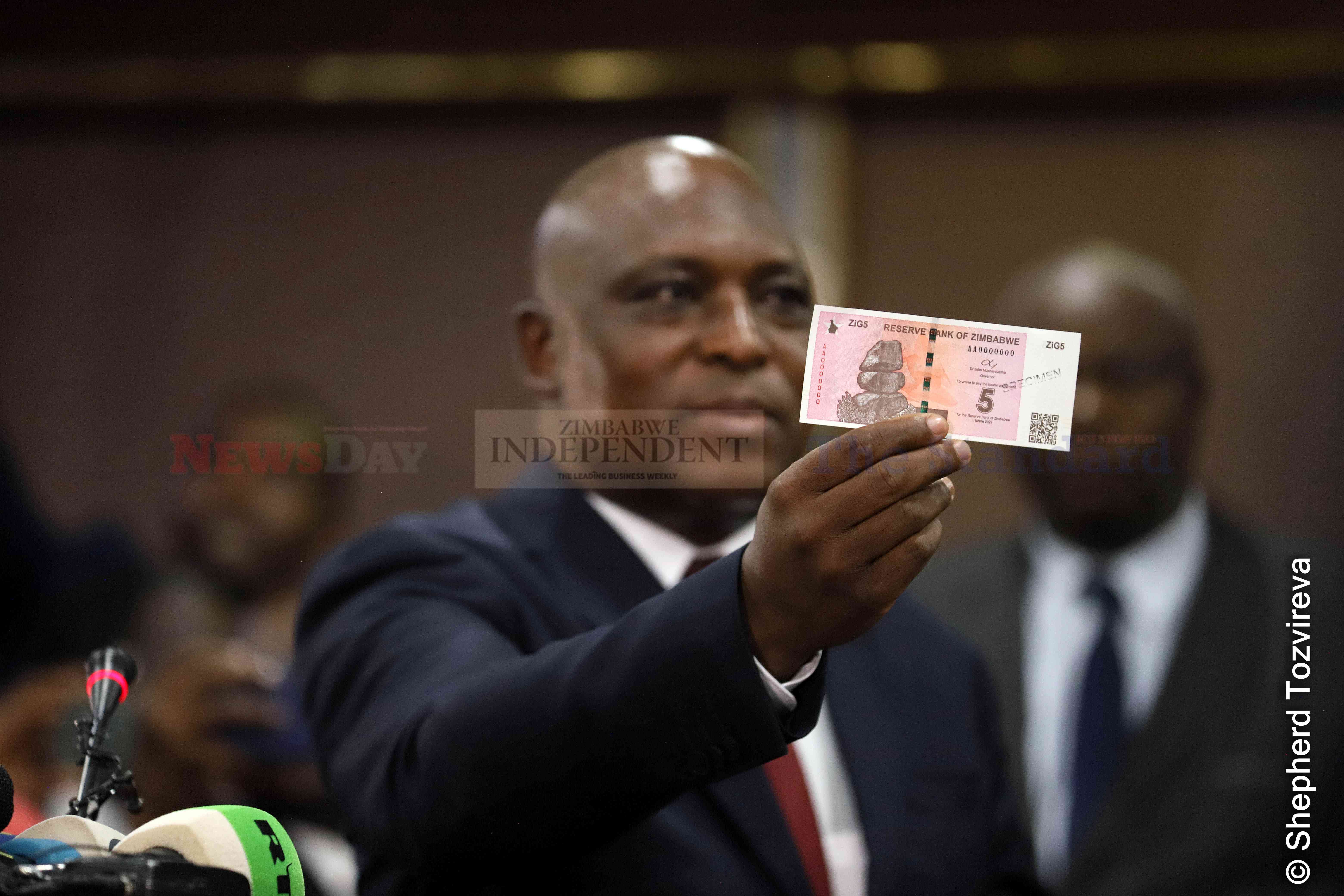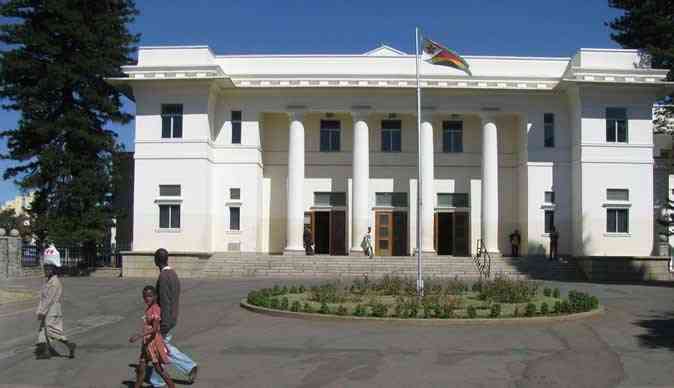
THE central bank’s annual inflation forecast of below 5% this year is unattainable and based on wrong assumptions, economists have said.
Reserve Bank of Zimbabwe governor John Mushayavanhu predicted, in his 2024 monetary policy statement, that the introduction of Zimbabwe Gold (ZiG), should result in the dissipation of inflationary pressures in the short to medium term.
As such, monthly inflation rates are expected to be well below 1%, while annual inflation is projected to close the year below 5%.
He also projected a deflation in the near future. But economists said the projections were not backed by any economic models.
“Before we look at the Zimbabwe specific situation, the global climate alone is evidence that there is guaranteed economic instability ahead, which makes his (forecasts) worrisome,” development economist Chenayimoyo Mutambasere said.
“The continuing Russia -Ukraine war has had and will continue to have an impact on global grain prices and other commodities due to significant supply reduction.”
She said the recent directive on exchange control wherein the RBZ has failed to make good payments taken from businesses as retention tax or auction allotments is further evidence of the country’s deficit and liquidity crisis.
The economist stressed that a recent drought disaster declaration is also evidence that the country could not meet its immediate obligations.
- Awards target married couples
- Awards target married couples
- Rampaging inflation hits Old Mutual . . . giant slips to $9 billion loss after tax
- Monetary measures spur exchange rate stability: RBZ
Keep Reading
“The launch of the new currency failed the litmus test on consultation which if done appropriately instils confidence the whole process which has become a drip-fed process has compounded the trust deficit which will see investors and consumers (leaving) this market,” she noted.
“What is likely to happen is a liquidity crisis coupled by hyperinflation. This attempt on quantitative easing will backfire. The Zimbabwe market has gone through this so many times you only need to look at past trends to see where this is going.
“Of course, other exogenous factors such as the drought that has had an adverse impact on agriculture leaves us increasingly dependent on imports when we are already chasing a trade deficit. Inflation will go up at least five times what it is now. That will be a best case scenario.”
Gift Mugano, a professor of economics, said the submission by the governor was "quite worrying" and an "unfounded” prediction.
“One would be tempted to think that he is building his submissions on two wrong assumptions. Firstly, one could be tempted to think that he is thinking that when he cuts the zeros, he is cutting inflation. He just cut the zeros,” he said.
“We saw it with Gideon Gono [former RBZ governor] when he cut the zeros, he didn't cut inflation. The zeros came back. Go to the shops, the prices are still up in relative terms, you are not buying more than what you were buying before. Your rentals are still the same; the massive taxes are still there. There is a cost push or driver to inflation,” he noted.
There is still excessive liquidity in the market, he submitted.
“The second wrong assumption (is that) he is now associating ZiG with the US dollar,” he noted.
“Naturally, when you have US dollars in the economy, there is deflation. So, I will be very surprised if inflation can be around 5%, or if we go into deflation.
“The construction work is a big thing as far as instability is concerned. Maybe we can also remind the governor that we are hearing rates in the black market of US$1: ZiG18 or ZiG20.”
Economic analyst Victor Bhoroma said there has never been deflation in local currency as consumer prices kept trekking upwards in tandem with money supply levels in the economy.
However, he noted that the central bank has limited control on the USD pricing and circulation in the economy.
Farai Chigora, an economist, said: “Civil servants are getting their salaries before 30 April. What do you expect? They need this USD. They are going to demand more USD than available from their ZiG. It's a sign of a disaster.”
“If they are not going to print money on top of what they have promised, it is achievable and deflation can happen in the future. But do we have that confidence as a society? No.”
Economist Stevenson Dhlamini said the target depended on the fiscal policy pronouncements and containment of the black market.
“This is a good principle that undergirds the monetary policy and will most likely lead to price stability in the short term,” he said.






